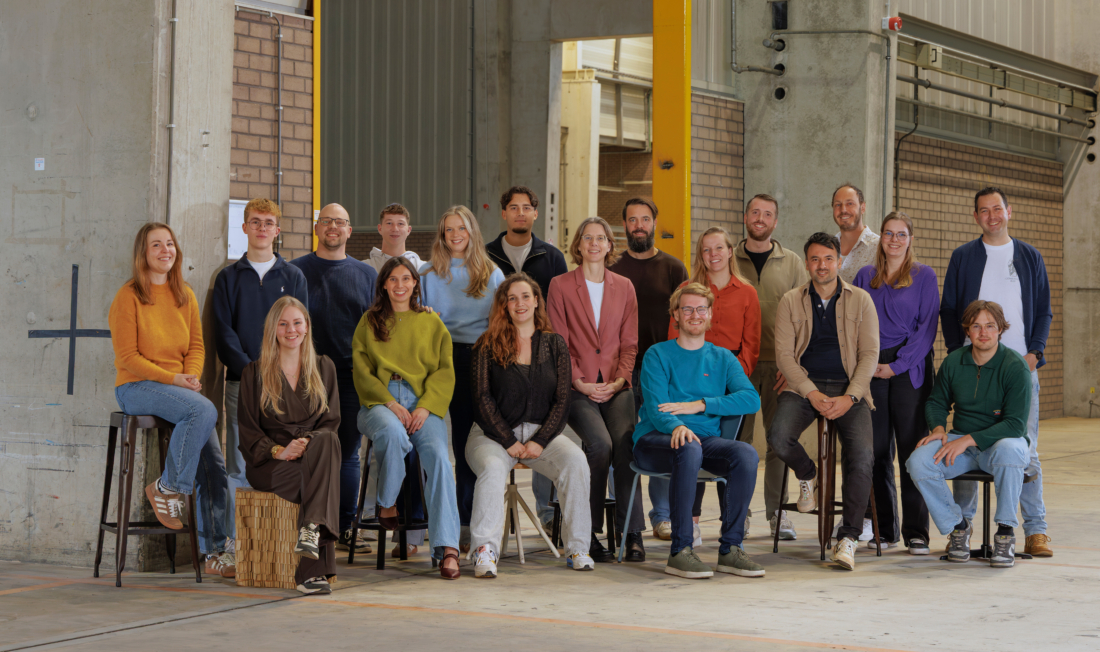Make your website search engine friendly with technical SEO
Technical SEO is the backbone of a well-optimised website. Zonder a strong technical foundation, even the most valuable content cannot perform optimally in search results. Whereas on-page SEO focuses on content optimisation and off-page SEO is about external factors such as backlinks, technical SEO is about your website's infrastructure and performance. This determines how search engines crawl, index and rate your site.
A website with a strong technical SEO is faster, safer and more accessible to both users and search engines. This not only contributes to higher rankings, but also ensures that visitors have a pleasant experience, which increases the likelihood of them staying on your site longer and taking action onder.
Crawling and indexing
Search engines such as Google use bots, also known as crawlers, to scour the internet and discover web pages. Once a page is found, it is analysed and, if relevant, added to the search engine's index. This process determines whether and how your pages are displayed in search results. If search engines cannot crawl or index your pages properly, they will not rank, no matter how good the content is.
To ensure that crawlers can explore your website correctly, a properly configured robots.txt file essential. This file provides guidelines to search engines on which pages they should and should not visit. This allows you to avoid indexing unimportant or duplicate pages, for example, which keeps your crawl budget efficient. However, an error in this file can cause important pages to be accidentally blocked, preventing them from appearing in search results.
A XML sitemap helps search engines understand your website more efficiently. This is a structured list of all the important pages on your website that you can manually submit to Google Search Console. Especially for large websites, e-commerce platforms or sites with a lot of dynamic content, a sitemap is an indispensable tool. It increases the chances of all valuable pages being indexed.
In addition, canonical tags help avoid problems with duplicate content. When multiple URLs point to the same content - for instance, through filters on a web shop or URL parameters - a search engine can get confused about which version should be indexed. With a canonical tag, you explicitly indicate which URL should be considered the main version.
Sometimes you want certain pages precisely not to be indexed. Think of thank-you pages after a purchase, internal search results or outdated content that is no longer relevant. You can take care of this with a noindex tag, which instructs search engines not to include a page in their index.
A common problem is that pages exist but are not crawled by search engines. This can be due to poor internal linking structure, for example. When important pages do not get internal links, they are hard to find for both users and crawlers. Therefore, it is important to place strategic internal links so that search engines can navigate your website effortlessly.
By combining a clear robots.txt file, a well-organised XML sitemap, correctly applied canonical tags and a smart internal link structure, you ensure that search engines can crawl and index your website efficiently. This forms the basis for good visibility in search results and helps your website perform optimally in SEO.
Website speed and Core Web Vitals
Speed plays a big role in user experience and is taken into account by Google as a ranking factor. A slow website causes a higher bounce rate and can negatively affect your ranking in search results.
Google measures the performance of your website via Core Web Vitals. These are three important factors that assess loading speed and usability:
- Largest Contentful Paint (LCP): How long it takes for the largest visible element on a page to load.
- First Input Delay (FID): The time between a user's first interaction and the website's response.
- Cumulative Layout Shift (CLS): How much the page layout jumps during loading.
One of the most effective ways to make your website faster is to optimise images by compressing them and offering them in modern formats such as WebP. In addition, browser caching helps repeated visitors access your site faster.
Want to look at this in more detail? Then check out our comprehensive guide on website speed.
Mobile optimisation
More and more searches are performed on mobile devices, giving Google a mobile-first index handles. This means that the mobile version of your website is leading in determining your ranking.
To provide a good mobile experience, a responsive design essential. This ensures that your website automatically adapts to different screen sizes. In addition, buttons and text should be large enough to zonder problems on a smartphone.
Use the Google Mobile-Friendly Test to check whether your website complies with the guidelines and what areas for improvement exist.
Structured data
Search engines don't always immediately understand what your content is about. With structured data, you can help search engines by adding extra context. This can result in rich results, such as star ratings, product prices or FAQ sections in search results.
Common types of structured data are:
- Product information (price, availability, reviews)
- FAQ schedule (Frequently asked questions directly visible in Google)
- Breadcrumbs (showing navigation structure in search results)
By implementing structured data correctly, you increase the chances that your pages will display better and stand out more in search results.
HTTPS and security
Security plays an increasingly important role within SEO. Not only because search engines like Google reward secure websites, but also because visitors are becoming increasingly critical of online security. An insecure website can scare off potential customers and even lead to a warning in the browser, seriously damaging trust in your website.
One of the most important security measures you can take is to implement an SSL certificate, which will load your website via HTTPS instead of HTTP. HTTPS ensures that data sent between the user and your website is encrypted. This prevents sensitive information, such as login details or payment details, from being onderschept by malicious parties. Google has named HTTPS as an official ranking factor, meaning a website zonder SSL certificate may perform less well in search results.
Besides HTTPS, it is also important to avoid mixed content. This happens when some elements of your website, such as images, scripts or style sheets, are still loaded over an insecure HTTP connection. This can lead to security warnings in browsers and can affect the credibility of your website.
You should also make sure your website is regularly updated. Outdated plugins, themes or software may contain vulnerabilities that hackers can exploit. It is advisable to periodically check your website for security vulnerabilities and make updates if necessary.
Protecting your website from unauthorised access is also essential. Strong passwords and two-step verification can help reduce the risk of hacks. By adding an extra authentication step, such as a code via an authenticator app, you make it much harder for hackers to access your admin environment.
By implementing these security measures, you ensure that your website remains safe for both visitors and search engines. This contributes not only to a better user experience, but also to higher reliability and an improved SEO score.
URL structure and internal links
A well-structured website has a logical URL structure and a smart internal linking policy. This helps search engines understand the hierarchy of your website and makes it easier for visitors to find relevant content.
A good URL structure looks as follows:
- Short and clear, for example example.co.uk/technical-seo instead of example.co.uk/blog/2025/03/technical-seo optimisation.
- Avoid unnecessary parameters and numbers in URLs.
- Use descriptive words instead of generic characters or IDs.
Internal links play an important role in SEO. By cleverly linking to relevant pages within your website, you spread link value and improve navigation for both search engines and users.
Managing redirects and error pages
Error pages and redirects are often a onderexposed onderpart of technical SEO, but they can have a big impact on your website performance.
When a page is deleted or moved, it is important to have a 301-redirect set. This prevents visitors and search engines from encountering an error message and ensures that built-up SEO value is preserved.
A well-designed 404 page offers visitors alternative options, such as a search function or links to popular pages. This prevents users from dropping out immediately.
Regularly checking for dead links and broken pages helps keep your website healthy and user-friendly.
Technical SEO as an ongoing process
Technical SEO is not a one-off action, but an ongoing process. Search engines keep adjusting their algorithms and websites are constantly changing. Regular technical audits help detect problems early and make improvements.
Want to take your technical SEO to the next level? Then consider a SEO training at Onder. Here you will learn how to technically optimise your website and make it more findable in search engines.
In addition, a strong technical SEO strategy can help increase the number of visitors, especially for smaller websites that do not yet have great authority. Read in the blog: How to get more visitors to a small website? How to do this smartly.
By mastering technical SEO well, you lay a strong foundation for an easily findable and future-proof website.
Share
Categorieën
- (Content) marketing
- AI (Artificial Intelligence)
- Analytics
- How to/DIY
- Linkbuilding
- news
- Other
- SEO tools
- Social media
- Technical SEO
Any questions?
Get in touch! :) we are happy to help you with all your SEO questions
SEO questionDon't miss it
Subscribe to our newsletter and don't miss a single SEO tip
"*" geeft vereiste velden aan












 Dutch
Dutch
 English
English